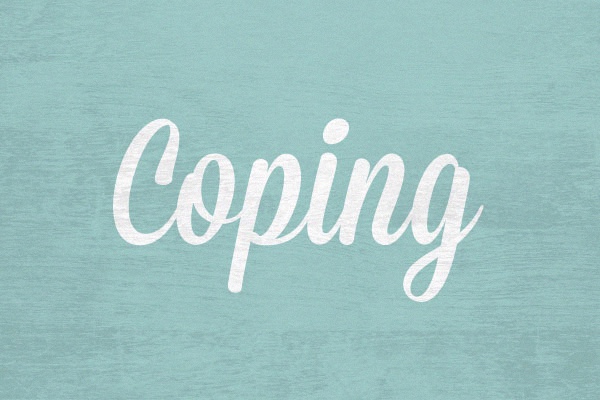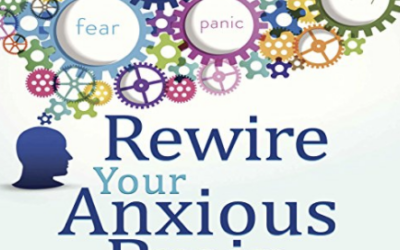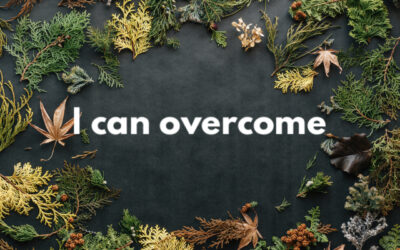It’s been over a month, but it may feel like an eternity, since Covid-19 was deemed a pandemic in the United States. Life as we knew it has been disrupted. It is probably safe to say that there isn’t a single person in the world that hasn’t been impacted by the pandemic in one way or another.
For the first time in history, we are experiencing a global shared pain, shared stress, shared grief and loss and shared trauma. While individually we may have experienced stress, fear anxiety, grief and loss, trauma depression, etc. before, as a community we had not gone through something like this together in such large-scale.
In the last month, all of us have experienced a loss–whether that is the loss of employment, health insurance, stability, the ability to see loved ones in person, doing things we normally would when and how we would have done it. And thousands have experienced painful and devastating life altering losses – losing family members and friends to Covid-19. No words can’t truly describe the pain associated with losing loved ones. Individually, as a community, as a nation and as a world, we are grieving and hurting.
As we continue to figure out how to make sense of what is happening around us, to adjust to a new way of doing things, to cope with our feelings and emotions and the uncertainty that the pandemic has brought, it is essential to know the psychological states being experienced so we normalize what is happening to us, our kids, and families, reduce our level of distress, validate ourselves and others, and decrease the stigma associated with “not handling emotions”, “how we are handling a situation”, or “feeling a certain way,” – all statements that we can think about ourselves or others when we feel we ought to respond a certain way. First thing first, let me tell you, there is nothing wrong with you for feeling a certain way. We are responding to an abnormal situation most of us are not prepared to deal with.
Grief and loss
You have probably heard about grief and loss. This process is often connected to death but it is also experienced when we lose something important to us or there is a perceived sense of loss.
Grief and loss is experienced in stages, which include:
- Denial (we can’t believe something is happening or has happened)
- Anger (we feel angry about what has happened)
- Bargaining (we experience a sense of wanting things to get better and often negotiate with ourselves, others or a higher being to make pain go away)
- Depression (feeling the sadness and pain more deeply) and
- Acceptance (we understand that what has occurred is happening).
These stages are not always experienced in this particular order nor on a particularly timeline. Some stages can last longer than others and some can be skipped. We can also experience anticipatory grief, which is grief experienced before a loss occurs. For instance, if we are thinking and worrying about dying or loved ones dying.
When people grieve, they may experience hopelessness, numbness, lack of energy (may sleep a lot or feel overly exhausted). Prolonged grief and loss related to the loss of loved ones may require professional help.
Experiencing triggers
Triggers are people, places, things, smells, sounds, situations, etc. that reminds us of something that has occurred in the past. For example, someone has experienced fear or trauma related to being in a life-death threatening situation could be triggered simply watching the news and learning about deaths due to Covid-19. Or someone who has been separated from a parent or parents and later reunited could get triggered watching other people lose their parents. This person may consciously or unconsciously fear another separation coming if their parents are no longer here.
Some of these fears are not on our consciousness but are manifested as behaviors, thoughts, and emotions, and it may impact decisions. For instance, a person fearful of losing parents may choose to go seem them even if it could be risky. To the rest of the world, this decision may not make sense. For the part of this individual that years connection and fears losing parents, a decision like ensures closeness to parents before being separated.
Fight, fight, freeze response
Additionally, the fight, flight, freeze response is activating over and over again. This is a response meant to protect us when we are in danger. We either fight or do something about the situation, we freeze or are immobilized about a situation and we flight which may be manifested as avoidance or running away from something.
Fear, anger, frustration
There are primary emotions being experienced by many during the pandemic, which are dictating many of the decisions we are making. People taking to the streets to demand reopening of their communities may consciously or unconsciously experience fear – fear of financial devastation, loss of their rights, etc. and fear of things outside of their control.
We have this information, what do we do now?
- Identify your response. Spend some time identifying which response you are seeing in yourself and those around us. When we name things, process them and accept them, there is more opportunity to shift how we may view ourselves for feeling, acting or behaving a certain way.
For instance, what I am experiencing is grief and loss. I am grieving the loss of my job. Notice how you feel as you name what you are experiencing. What emotion and sensation arises in your body. Name what you are experiencing. For example, I am feeling sad and scared for losing my job.
- Accept that you are experiencing a normal response to an abnormal situation. After you identify your response, normalize it by telling yourself that you didn’t provoke this response, than the situation itself prompts us to respond in a particular way. You can also tell yourself, while you didn’t create these emotions or reaction, you do have the control to manage how you feel or do something about how you feel.
- Noticing sameness. With so much change around us, things may feel out of control. Redirect your attention to the things that have stayed the same in your life.
For example, love of family and friends, the sun rising, the sun setting, my determination, my spirituality, etc.
- Bring yourself to the hear and now. The mind wanders and thinks about 70,000 thoughts per day, and most thoughts are repetitive. Imagine how much worry that may be if most of your thought are worry thoughts. Help your mind come to the present moment.
When you notice your mind staying in the past or focusing too much on the future, acknowledge that you are either in the past or future by saying: I am in future mode, I am in past mode and bring your attention to your breathing, take a few deep breaths until you can ground yourself back in the present moment. It may also be helpful to notice things around you, notice your feet grounded in the floor, or notice your body laying down.
When fear is a prominent emotion, you can bring yourself back to the present moment by reciting statements such as: I am afraid to lose my job, but at this very moment I am still employed or I am afraid to losing housing, at this very moment, I have housing. This will allow your nervous system to calm down, for the rational part of the brain to activate and for you to begin planning about what makes you nervous.
When I think about shared pain, I can’t help to also think about shared healing. This gives me hope. The sense of shared pain lets us know we are not alone and when we are not alone, we can think of our experience not as isolating but one that unites us.
These strategies should not replace seeing a mental health professional when you need it. If any symptoms you may experience persist for two consecutive weeks, seek help. To learn where to find support, click here.
Cheryl Aguilar is founding director and therapist at the Hope Center for Wellness.
3 Tips to Cope with Transition
Greek philosopher Heraclitus said, “The only thing constant in life is change”. Whether it is the changing of seasons, moving, or watching your kids grow up, change always surrounds us. Life is a series of transitions and changes and can be both big and small,...
What We Are Reading: Rewire your Anxious Brain
With so much uncertainty in our lives caused by the pandemic, anxiety predominated in 2020, among many other mental health challenges. After having named anxiety as part of our experience last year, this year we can continue to learn and practice the tools that are...
Wellness Based Year-End Reflection Questions & Strategies to Activate Hope and Resilience
“Imagine the more beautiful world our hearts know is possible,”- Charles Eisentein.
How to Survive the Holidays if You are Hurting
The holiday season is here. And like every year around this time, we are getting bombarded with advertising, social media messages and reminders about the joyful spirit this season brings and the happiness we are expected to feel or experience. But what happens if you...
Stillness in the Midst of the Unknown
We are getting down to the wire. For all of us, our futures depend on what is going to happen on November 3rd and for a lot of people, there is a lot more at stake. Our minds driven by our innate survival instinct to protect ourselves, to plan, are hyper focused on...
A Mindful and Easy to Follow Recipe for Changing Habits
I can't think of a more fitting book to read as we, as individuals and community, work to endure the Coronavirus pandemic and have to adapt to new norms and evaluate, and change some of our existing habits. With his kind wisdom and guidance, Hugh Byrne, a leading...







